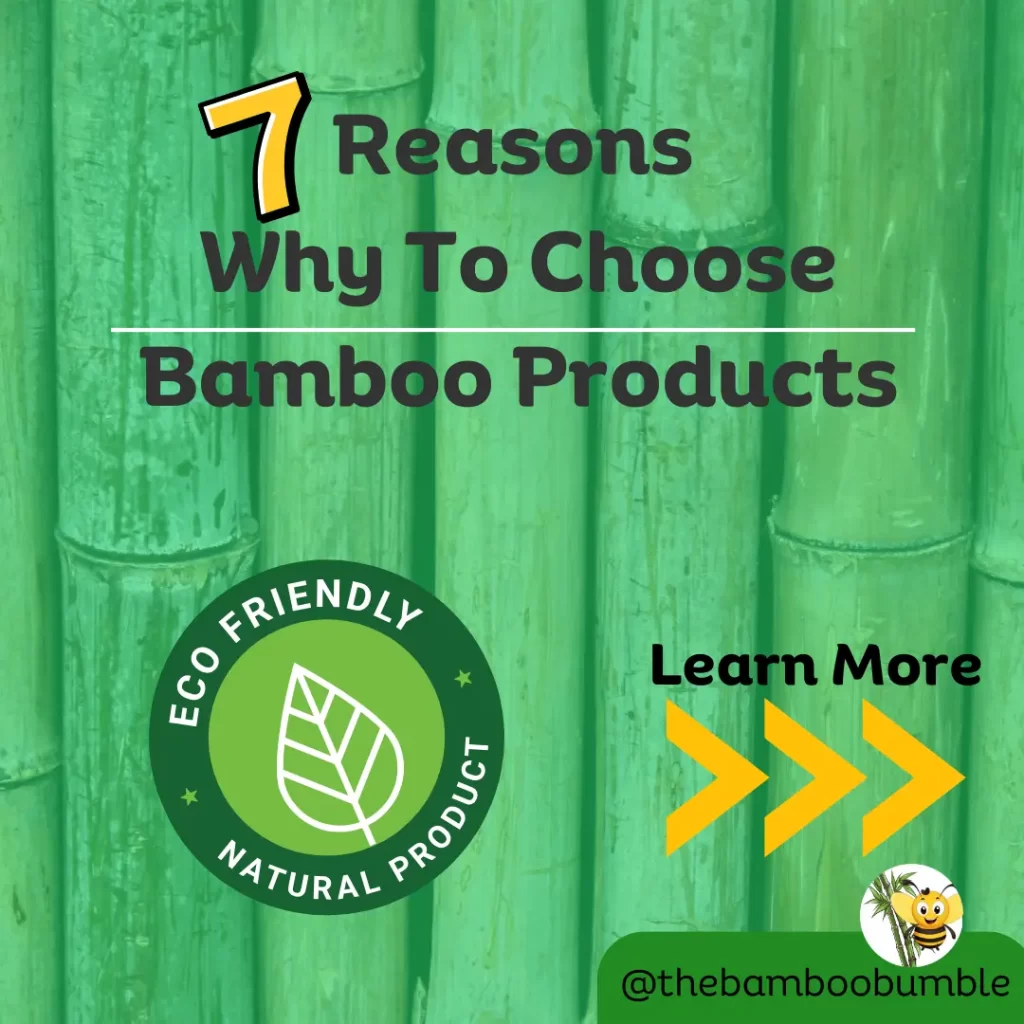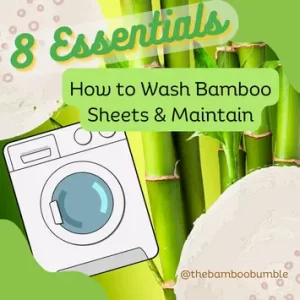5 Quick Facts About Bamboo Sustainability
Did you know that bamboo is the Usain Bolt of the plant world? It grows faster than any other plant on Earth, shooting up at an astonishing rate. But bamboo’s sustainability goes beyond its rapid growth. There are five quick facts about bamboo that make it a sustainable choice for our planet. These facts will make you think twice about the impact of your choices and leave you wondering how bamboo manages to tick all the boxes of sustainability.
Table of Contents
The Benefits of Bamboo Sustainability: A Eco-Friendly, Versatile Resource
- Bamboo is a rapidly renewable plant that can be frequently harvested, providing a consistent supply of material for building, furniture-making, and paper production.
- Bamboo has innate pest and disease resistance, minimizing the need for chemical pesticides and fostering a healthier environment.
- Bamboo requires minimal irrigation and its specialized structure allows efficient water distribution, enabling it to thrive in drought-prone regions with limited water access.
- Bamboo can flourish without chemical fertilizers because of its ability to convert atmospheric nitrogen and recycle nutrients into the soil, promoting self-sustainability and reducing chemical reliance.
Fastest Growing Plant on Earth
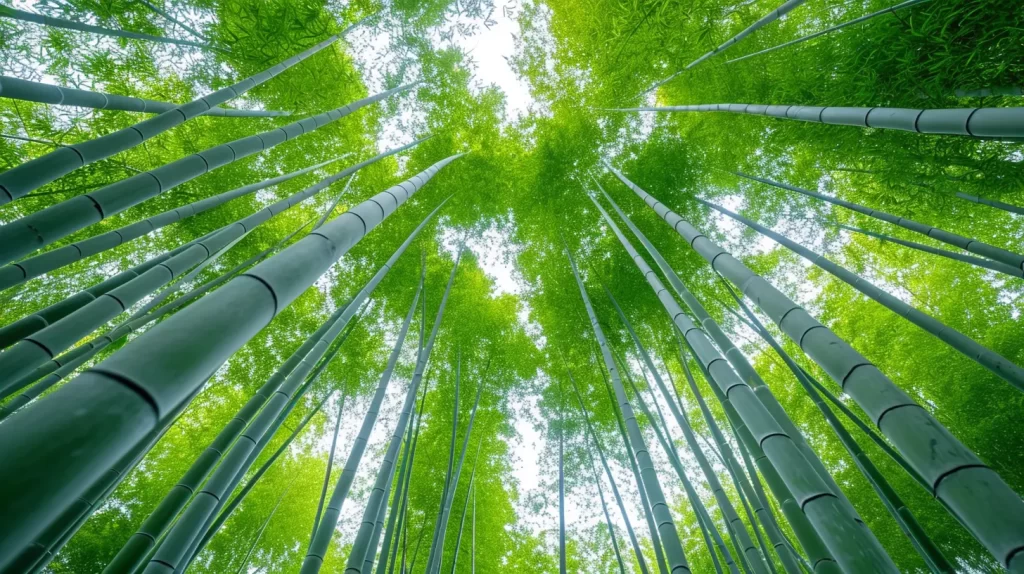
Bamboo holds the title for being the fastest growing plant on Earth, with certain species capable of growing several feet in a single day. This incredible growth rate makes bamboo an ideal choice for those who desire to serve others. With bamboo, you can quickly grow a sustainable source of material for various purposes. Its rapid growth means that you can harvest bamboo frequently, ensuring a steady supply for your needs. Whether you want to build structures, create furniture, or even make paper, bamboo can provide a renewable solution. By choosing bamboo, you are not only benefiting yourself but also contributing to the well-being of the planet. Embrace the speed and sustainability of bamboo, and let it serve your needs while serving others.
Naturally Pest and Disease Resistant
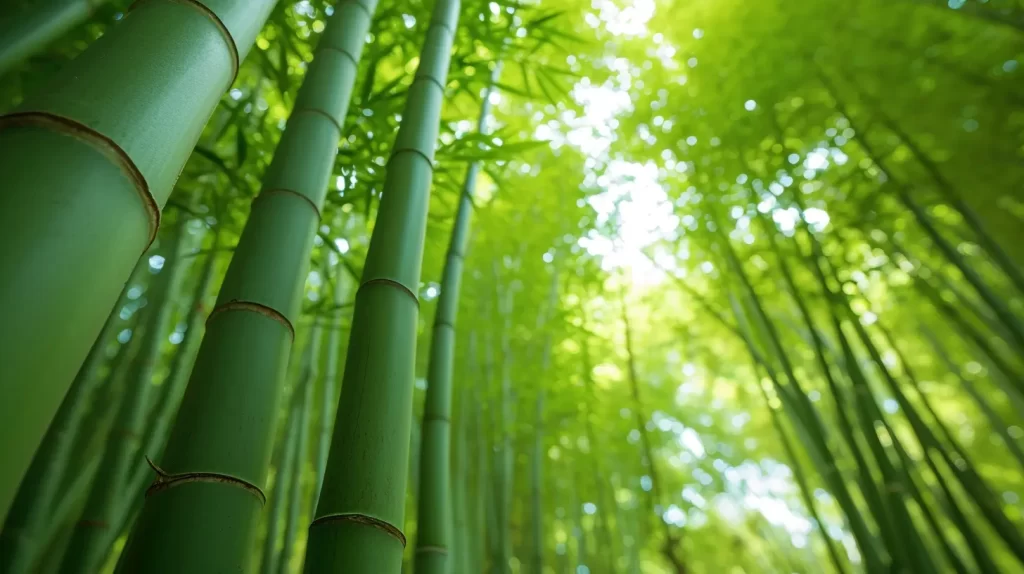
With its natural resilience, bamboo presents an excellent solution for those seeking a plant that is naturally resistant to pests and diseases. Unlike other plants that require chemical pesticides, bamboo has built-in defense mechanisms that make it less susceptible to damage from insects and diseases. Here are three reasons why bamboo is naturally pest and disease resistant:
- Natural oils: Bamboo contains natural oils that act as a deterrent to pests, making it unattractive to insects like termites and beetles.
- High silica content: Silica is a mineral found in bamboo that strengthens its cell walls, making it more difficult for pests to penetrate and cause damage.
- Rapid growth: Bamboo’s rapid growth rate allows it to quickly replace any damaged or diseased parts, preventing the spread of diseases and minimizing the impact of pests.
- Bamboo has high tensile strength which makes it suitable for construction projects as a resilient and durable building material.
With its rapid growth, versatility, hardiness and environmental sustainability, bamboo is an exceptional renewable resource that offers solutions for many modern needs.
Minimal Water Requirements
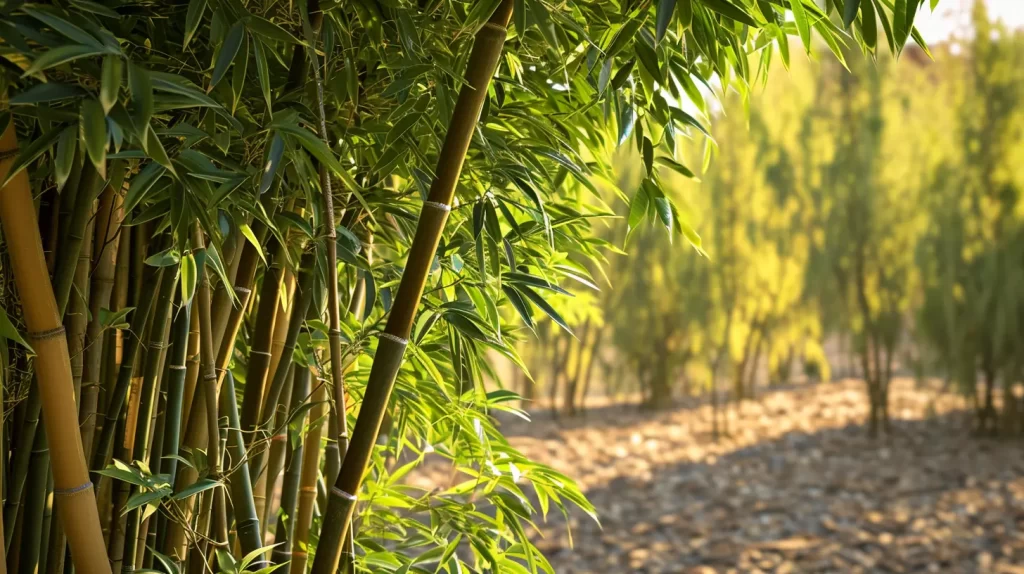
To maintain its natural resilience, bamboo also requires minimal water. This makes it a great choice for those who desire to serve others while conserving water resources. Unlike other plants, bamboo has the ability to thrive in low-water conditions, making it an ideal option for regions that experience drought or have limited access to water. Bamboo’s efficient water usage is due to its unique structure, with its hollow stems allowing for efficient water distribution throughout the plant. Additionally, bamboo has a high transpiration rate, which means it releases moisture into the air, helping to regulate humidity levels in its surroundings. By choosing bamboo products, you can contribute to water conservation efforts while still enjoying the numerous benefits this sustainable material has to offer.
Thrives Without Chemical Fertilizers
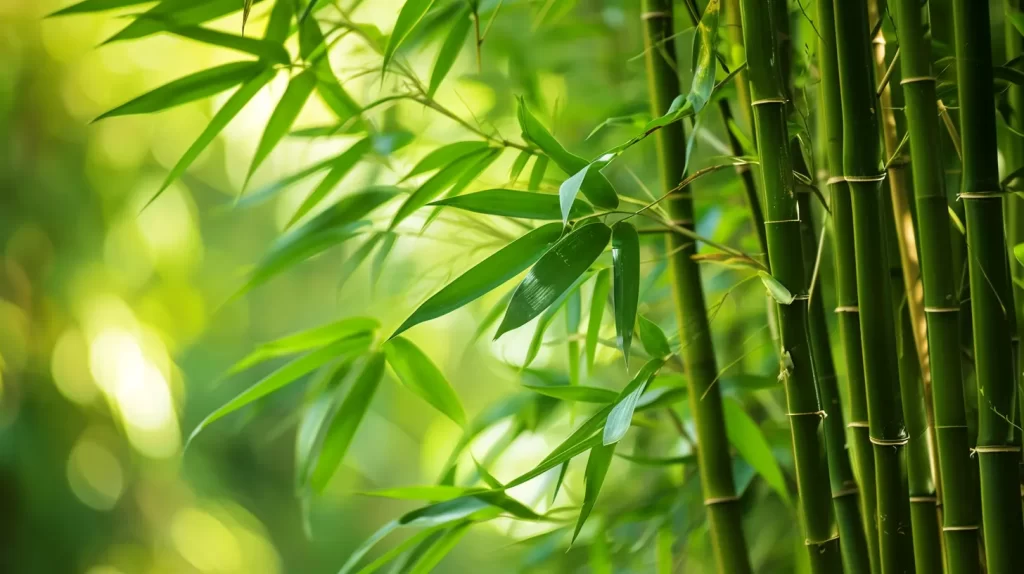
One of the remarkable qualities of bamboo is its ability to thrive without the use of chemical fertilizers. This makes it an excellent choice for those who desire serving others and the environment. Here are three reasons why bamboo can thrive without chemical fertilizers:
- Natural Nutrient-Rich Soil: Bamboo has the ability to grow in a wide range of soil types, including poor-quality soil. It can extract nutrients from the soil more efficiently than other plants, making it self-sustaining.
- Nitrogen Fixation: Bamboo has a unique relationship with certain bacteria in its roots that allows it to convert atmospheric nitrogen into a form that can be absorbed by the plant. This natural process eliminates the need for nitrogen-based fertilizers.
- Leaf Litter Decomposition: As bamboo sheds its leaves, they decompose quickly and release nutrients back into the soil. This natural recycling process nourishes the plant and eliminates the need for additional fertilizers.
- Carbon Sequestration: As a fast-growing grass, bamboo effectively converts atmospheric CO2 into biomass carbon stored in its tissues. This makes it an excellent carbon sink, helping mitigate climate change.
- Soil Conservation: Bamboo’s widespread root system binds soil together, prevents erosion on slopes and hillsides, and restores degraded lands.
With its unique abilities to self-sustain and enrich the soil, bamboo represents one of nature’s gifts for healthy, regenerative agriculture and environments. Its cultivation nurtures life without relying on artificial chemical inputs.
Low Carbon Footprint

Bamboo’s low carbon footprint makes it an environmentally-friendly choice for sustainable living. When it comes to reducing greenhouse gas emissions, bamboo is a superstar. Unlike other materials, bamboo absorbs more carbon dioxide from the atmosphere and releases more oxygen. This process helps to mitigate climate change and improve air quality. Additionally, bamboo grows rapidly, reaching maturity in just a few years, which means it can be harvested and replaced quickly. This sustainable growth cycle further reduces its carbon footprint. By choosing bamboo products, you are actively contributing to the fight against climate change and promoting a healthier environment. So, whether it’s bamboo furniture, clothing, or even straws, know that you’re making a positive impact by choosing this eco-friendly option. Keep serving the planet with bamboo!
Conclusion
So there you have it, bamboo is the ultimate eco-friendly choice for sustainable living. With its rapid growth, natural resistance to pests, minimal water needs, and ability to thrive without chemicals, it’s a no-brainer. Plus, its low carbon footprint means you can enjoy a guilt-free lifestyle. Bamboo: the green revolution of our time!

Bamboo FAQ
What makes bamboo a sustainable choice for the environment?
Bamboo is a sustainable choice due to its rapid growth, natural pest resistance, minimal water requirements, and the ability to thrive without chemical fertilizers. These qualities make it an eco-friendly option for various purposes.
How does bamboo contribute to reducing carbon emissions and fighting climate change?
Bamboo acts as a carbon sink by absorbing more carbon dioxide from the atmosphere and releasing oxygen. Its fast growth and sustainable harvesting further reduce its carbon footprint, making it a valuable resource in the fight against climate change.
What are the advantages of using bamboo products for sustainable living?
Choosing bamboo products, such as furniture, clothing, or straws, promotes sustainable living by supporting a low carbon footprint, water conservation, and natural pest resistance. Bamboo’s versatility and eco-friendliness make it an excellent choice for those seeking environmentally-conscious options.


